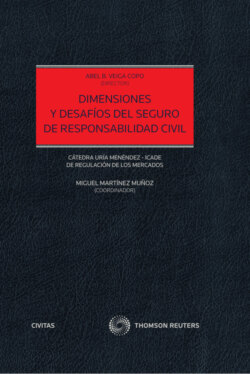Читать книгу Dimensiones y desafíos del seguro de responsabilidad civil - Abel B. Veiga Copo - Страница 101
На сайте Литреса книга снята с продажи.
III. THE BATTLE OVER THE RLLI
ОглавлениеOnce converted from Principles project to a Restatement, the RLLI faced significant attack by substantial portions of the U.S. insurance industry. The attacks seem misplaced in that the RLLI primarily enunciates black letter rules that are fairly settled and uncontroversial. Where the RLLI takes a position on a legal issue over which the jurisdictions are split, it has roughly an equal number of pro-policyholder and pro-insurer positions. Arguably, on the most important issues implicating the largest amount of money, the RLLI has sided with insurers more than policyholders27. Under these circumstances, it is quite odd to see substantial opposition to the RLLI from insurers. The RLLI reflects mainstream approaches to insurance issues28. Several of the provisions in fact take demonstrably pro-insurer positions and the document as a whole is not unduly slanted to either policyholders or insurers.
As previously noted, the Project began in 2010. Selected to provide feedback to the Reporters was a group of approximately 40 Advisers composed of roughly equal numbers of judges, law professors, policyholder attorneys, and insurer attorneys or executives29. In addition, as with all ALI projects or restatements, ALI members can volunteer to be part of the project’s Members Consultative Group (“MCG”)30. The Advisers and the MCG are provided with drafts and meet at intervals to discuss the drafts and provide criticism and commentary to the Reporters. Typically, a draft is discussed by the Advisers over a full day at ALI headquarters in Philadelphia, followed by discussion with the MCG on the ensuing day. Nine such sessions were held in connection with the RLLI with another, presumably final session planned for September 2017.
In addition to the formal process of distributing and discussing drafts within the Institute, the ALI maintains a record of the Restatements and Projects on its website, to which both ALI members and non-members may post comments. The RLLI was no exception and as of the May 2018 Annual Meeting approached had been subject to more than 250 comments31 and more than thirty-six (36) motions regarding portions of the drafts32. After meeting with Advisers and the MCG, the Reporters revised the then-current draft and presented a “Council Draft” to the ALI Council, which reviews, discusses, and then votes upon the Restatement sections before it. The RLLI was discussed at five different Council meetings between 2012 and 2018 prior to the May 2018 Annual Meeting.
After approval by the Council, the relevant portions of a Restatement are put before the ALI membership at its Annual Meeting. At the Annual Meeting, Restatement provisions are discussed seriatim before those on the floor, with members permitted to offer amendments and commentary. Votes are taken on the proposed amendments while commentary is generally considered by the Reporters for potential editorial changes after the Meeting. The proceedings are transcribed and published by the Institute and provide something of a legislative history regarding review of a restatement. The RLLI was subject to discussion at the 2012, 2013, 2014, 2015, 2016, 2017 and 2018 Annual Meetings, with final approval made at the May 2018 Annual Meeting and formal publication in 2019.
